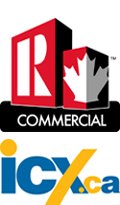Is That Property You're About to Buy Really a Good Investment? Here's How to Tell...
 So you've set aside some money or maybe you've inherited a big bag of cash(repleat with dollar signs on the side of course!) from your rich aunt, or even better, you've set up a syndication group and you're ready to start buying commercial real estate.
So you've set aside some money or maybe you've inherited a big bag of cash(repleat with dollar signs on the side of course!) from your rich aunt, or even better, you've set up a syndication group and you're ready to start buying commercial real estate.
Great!
The next step is to go out and find some potential investments. Once you've done that (easier said than done!), you need to decide if the investment is a good one or not.
How to do that? Contrary to prevailing belief, there isn't a flood of distressed property flooding the market, nor are prices being affected too drastically in Canada. From a recent Globe and Mail article about the state of the Canadian market:
But what if the market isn't all that distressed? Third-quarter statistics from RealNet Canada Inc. hinted that a rebound is taking hold in Canadian commercial real estate markets after 18 months of contraction.And this from reportonbusiness.com on the same topic :
Canada's commercial real estate market is on the mend, as an 18-month slump in Toronto has ended and other urban centres are showing signs of renewed activity that suggest the sector has de-coupled from its troubled U.S. counterpart.So how do you get started?
After almost two years of flat or declining activity, industry tracker RealNet Canada Inc. said investments in commercial property in the Greater Toronto Area increased by 46 per cent in the third quarter over the second quarter, to $1.31-billion, while the number of transactions increased by 20 per cent.
"This is a statistical sign of a recovery, even if it's not a full-blown recovery," said RealNet president George Carras, adding that sales are still only half of what they were going into the recession. "You can't call a bottom until it's passed, but this data is positive and very factual - it's real, hard evidence, and not anecdotal comments."
Do your research and use professionals to find the right kinds of properties. You can do all of the leg work yourself, but why not use the expertise of people who work in the markets where you want to invest? The efforts of several people working toward the same goal will almost always result in a quicker turn-around and hopefully with a higher degree of success.
Once you've found a good investment candidate (or several hopefully), you need to do your homework and analyze the tenant mix, the income and expenses as well as the condition of the property and the general market conditions in your area. Assuming that the market is stable or improving and further assuming that the property is in good condition, and also that the tenants are solid risks, all you really need to do is dissect the income and expenses and consider the cost of carrying a mortgage loan.
Simple, right? Well, the process isn't too complicated, and a competent commercial real estate professional should be able to help you with this.
- Start by looking at the Net Operating Income (NOI). Take a look at all of the income streams from the property and deduct all of the operating expenses, but ignore debt service costs, to derive the NOI.
- Next, calculate the debt service payments required to carry the property. Your lender will give you a clear picture of the required downpayment based on the property and your credit history and will give you an idea of the expected interest rate and loan amortization term. Use this handy calculator to make your calculations (note: this site defaults to a Canadian calculator - if you're in the US, remember to check the button that says US property or the result will be incorrect for your purposes.)
- Now deduct the annual debt service (12 X the monthly payment) from the NOI to arrive at a pre-tax cash flow number. This is the money left over after all expenses save income taxes are paid.
Is the number you arrive at greater than $0, also called positive cashflow? If not, is it really an 'investment'? Even if it is greater than $0, is there any room for error, or will you be in a negative cash flow position if the property's income drops just a little?
Definition from thefreedictionary.com:
investment - the act of investing; laying out money or capital in an enterprise with the expectation of profit
'The expectation of profit" is the key phrase here. I have seen too many would-be 'investors' either fool themselves or be fooled by others into buying into the philosophy that $0 or negative cashflow is acceptable because 'the market always goes up and you'll realize a profit when you sell'. While this is most certainly the case most of the time, for myself and my clients, that's just not good enough.
If an investment doesn't provide positive cashflow from day one, then it isn't an investment, it's a liability.
The exception to this rule is when rehabbing a building and you go into the project knowing that it will be a set period of time before you can expect a return on your money. In general, however, when considering pure investments where you are simply buying a property based on its existing income stream, if there isn't positive cashflow on the first day of ownership then it probably isn't worth considering. Read more...














